The 13 Zodiac Constellations & How To Find Them
Your zodiac sign is written in the stars.
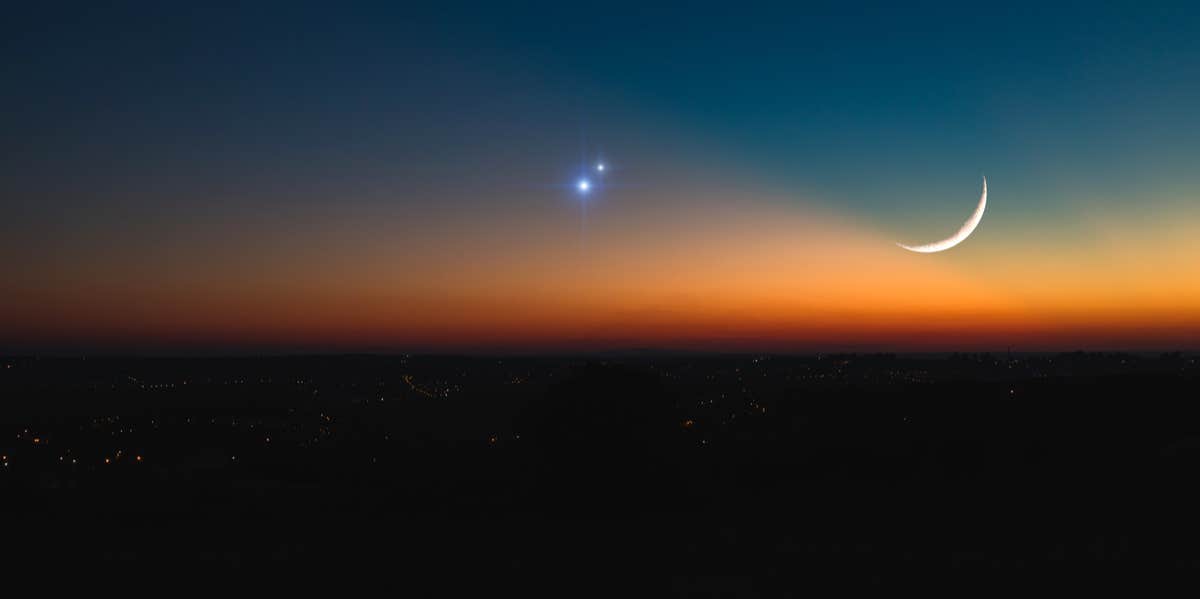 astrostar / shutterstock
astrostar / shutterstock When you look up at the night sky, you can probably easily identify constellations like the Big Dipper and the Little Dipper. Perhaps you already know how to recognize the morning star and the night star, too.
But do you know the zodiac constellations?
Each zodiac sign has a correlated constellation, though many people aren't quite sure what these constellations mean or how to find them.
These constellations are situated along the sun's path, called the ecliptic, around the sky as seen from Earth. As the sun passes through each constellation, the correlated zodiac sign's season begins.
For example, when an astrologer says that your Sun is in Cancer, this means that at the time you were born, the Sun appeared to be in the constellation Cancer.
You have to be patient if you want to see all of these zodiac star constellations at night, as they do not appear all at the same time. Throughout the night some will be visible while finding others can be a bit tricky.
The 13 Zodiac Constellations
Aries (March 21 - April 19)
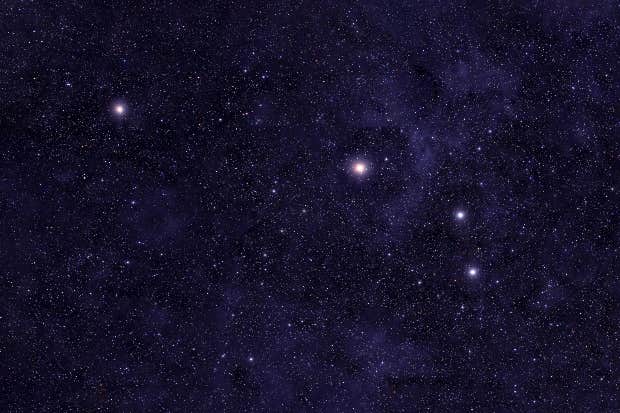 Photo: Artsiom P / Shutterstock
Photo: Artsiom P / Shutterstock
The Aries constellation is in the northern hemisphere and is made up of four stars and represents a ram.
The best time to view the Aries constellation is in November and December.
Taurus (April 20 - May 20)
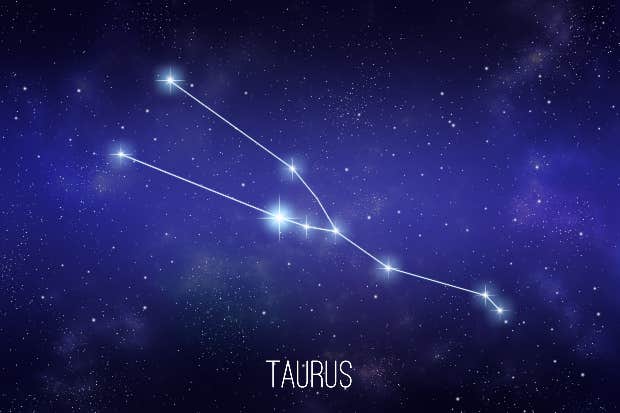 Photo: MattLphotography / Shutterstock
Photo: MattLphotography / Shutterstock
The Taurus constellation is in the shape of a "V" and represents a bull. You can see it the best by first looking at Orion's belt (three stars in a line).
The next star you want to focus on is Aldebaran, it is the eye of the bull and is bright red. You want to trace from Orion's belt to the right until you hit Aldebaran. You should see the "V" by then and that is a part of Taurus.
Gemini (May 21 - June 20)
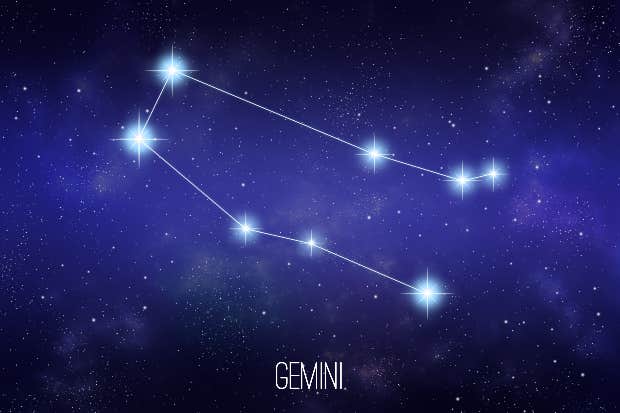 Photo: MattLphotography / Shutterstock
Photo: MattLphotography / Shutterstock
The Gemini zodiac sign's symbol is the twins which are apparent in the Gemini constellation.
You will need to look at the Orion constellation to find this one. When looking at Orion's belt (three stars in a line), another four stars mark Orion's feet and shoulders.
The star on the lower right is bright blue and called Rigel. The star on the top left is red and giant named Betelgeuse. You trace a line from Rigel (go through the middle belt star) onto Betelgeuse.
You will want to continue this line until it brings you to two stars of equal brightness. Those stars are Castor and Pollux, the stars that make up Gemini.
Cancer (June 21 - July 22)
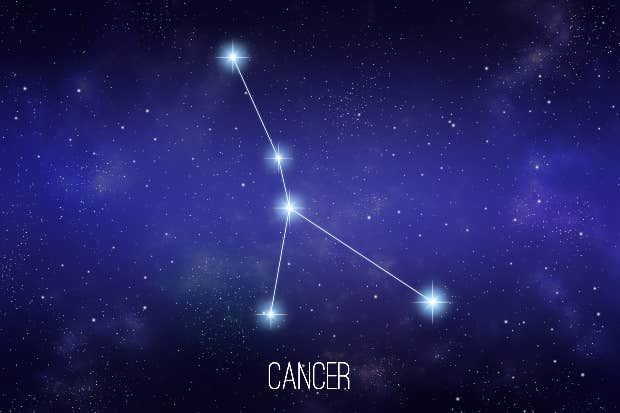 Photo: MattLphotography / Shutterstock
Photo: MattLphotography / Shutterstock
The Cancer constellation is extremely faint and the toughest zodiac constellation to find in the night sky. The sky has to be completely dark if you want to catch a glimpse of it.
When you see the constellation it should look like an upside down "Y." You can find Cancer the easiest by using Gemini and Leo's brightest stars between which the Cancer constellation sits.
Leo (July 23 - August 22)
 Photo: angelinast / Shutterstock
Photo: angelinast / Shutterstock
The Leo constellation is one of the easiest to find. Best seen in the months of March, April, and May, you can use the Big Dipper to find Leo in the sky.
Use the two pointer stars at the top of the Big Dipper, tracing them away from the North Star until you hit the part of Leo shaped like a triangle.
Virgo (August 23 - September 22)
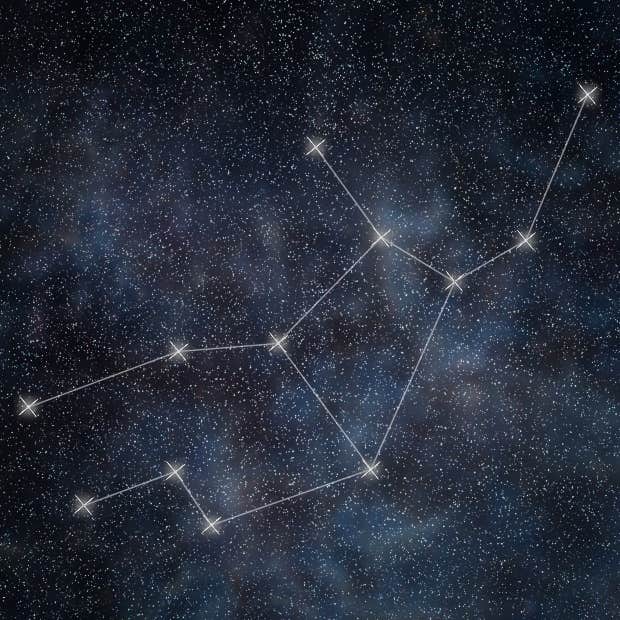 Photo: Allexxandar / Shutterstock
Photo: Allexxandar / Shutterstock
The constellation of Virgo the Maiden is best seen in May.
You can use the Big Dipper to find this constellation, the second largest constellation in the sky. Start from the "bowl" and trace the handle away along the arc until you hit the bright star named Arcturus.
From Arcturus keep tracing until you hit a blue star named Spica. Spica looks like it is in the center of a "Y"-shaped constellation. That constellation is Virgo.
Libra (September 23 - October 22)
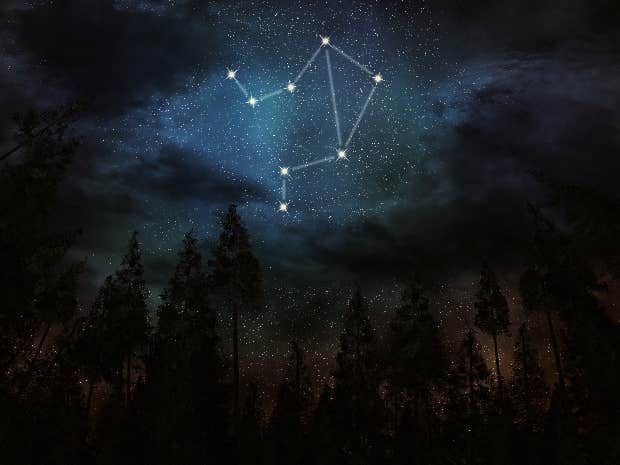 Photo: YEVHENII KUCHYNSKYI / Shutterstock
Photo: YEVHENII KUCHYNSKYI / Shutterstock
The Libra constellation is best viewed during summer evenings.
To find the Libra constellation, which resembles scales, first locate the big red star Antares. The Libra constellation's two brightest stars Zubenelgenubi and Zubeneschamali are nearby.
Scorpio (October 23 - November 21)
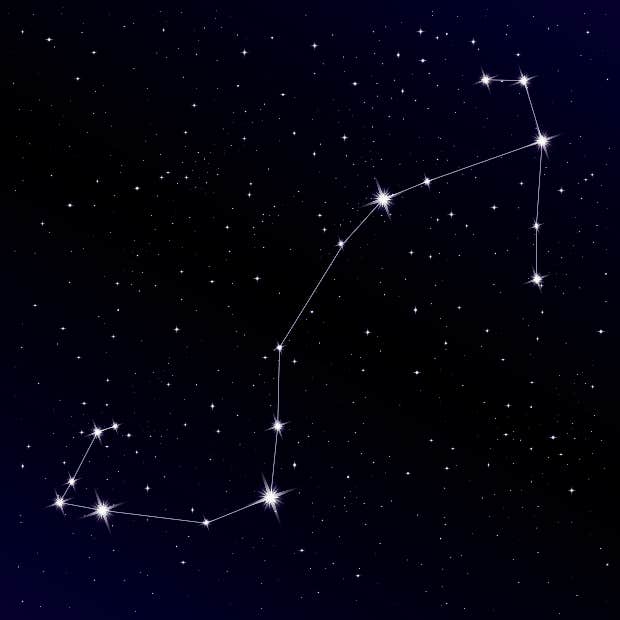 Photo: angelinast / Shutterstock
Photo: angelinast / Shutterstock
Scorpio's constellation name is Scorpius. As one of the easiest constellations to see in the sky, Scorpius is best viewed in July and August.
To find Scorpius, look for the bright red star called Antares, which is the head of the Scorpio scorpion.
Sagittarius (November 22 - December 21)
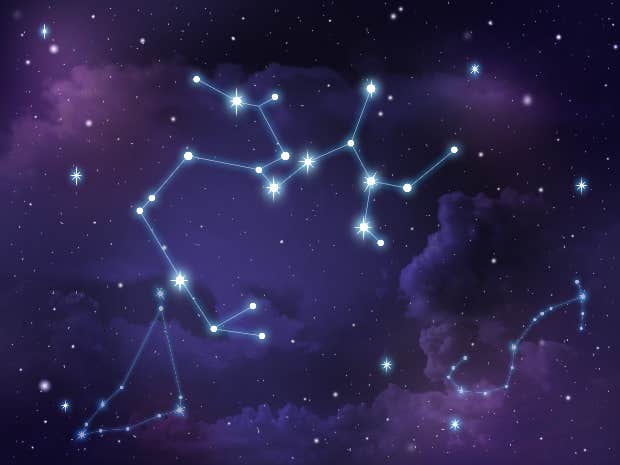 Photo: Taeya18 / Shutterstock
Photo: Taeya18 / Shutterstock
The Sagittarius constellation is right next to Scorpio and is best viewed in August and September. It is a bit tiny and looks like a teapot. Some people say actually singing the Teapot Song while tracing can help them find it easier.
You can trace the steam that appears out of the spout all the way to the Milky Way. Sagittarius has an arm that extends into the Milky Way.
When you look towards that arm you are looking into the center of the galaxy.
Capricorn (December 22 - January 19)
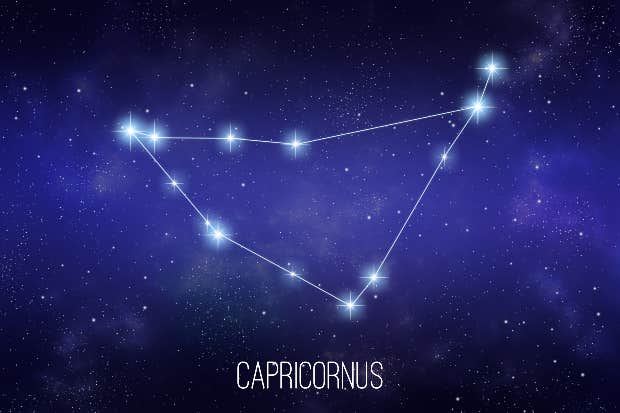 Photo: MattLphotography / Shutterstock
Photo: MattLphotography / Shutterstock
The Capricorn constellation is called Capricornus and is shaped like an arrowhead.
Capricornus is the smallest constellation. It;s faint and best viewed from the Southern Hemisphere. However, you can see it from the Northern Hemisphere in September and October.
First, look for the Summer Triangle. Then draw a line from the star Vega through the star Altair to find Capricornus.
Aquarius (January 20 - February 18)
 Photo: Hollygraphic / Shutterstock
Photo: Hollygraphic / Shutterstock
The Aquarius constellation sits between Capricornus and Pisces and is best viewed in October and November.
This constellation is also a tricky one to find. You use the same line drawing technique that you used to find any of the other constellations.
You start from Capricorn and draw a line from there until you hit a pair of oval-shaped stars. This is the flowing water that comes out of the Aquarius constellation.
Pisces (February 19 - March 20)
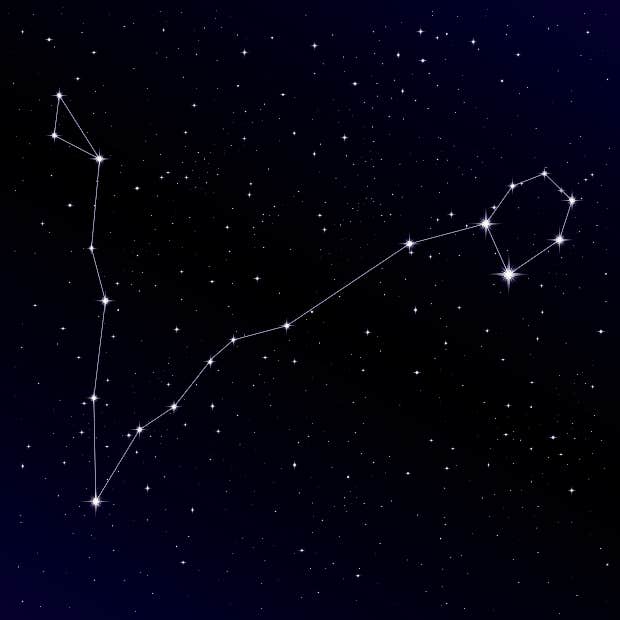
Pisces is the first zodiac constellation. It's best seen in November and December.
The stars that make up the Pisces constellation are dim, making the constellation somewhat tricky to find.
Draw a line from Aquarius until you get to a huge square. Along the outside of the square are two stars and they are the two that you want to pay attention to. They should both meet at the corner of one square with a round shape at the end of both of these lines. This is the Pisces constellation.
Ophiuchus, the 13th Zodiac Constellation
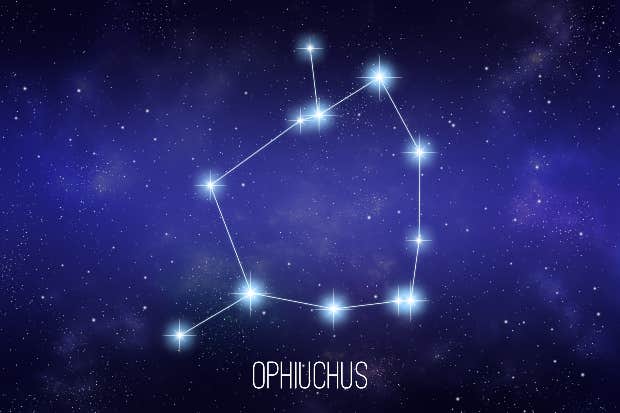 Photo: MattLphotography / Shutterstock
Photo: MattLphotography / Shutterstock
There's a 13th zodiac constellation along the ecliptic called Ophiuchus.
The faint constellation of Ophiuchus the Serpent Bearer is best seen in July. To find Ophiuchus, look for the bright red star Antares. From there, look north to find Ophiuchus' brightest star called Rasalhague, which represents the head of the Serpent Bearer.
Despite being a zodiac constellation, Ophiuchus is not formally recognized as a zodiac sign in Western Astrology.
Molly Given is a writer and lover of all things to do with mystery and magic in life. When she's not writing her fingers off she can be found planning her next adventure in a new part of the world
